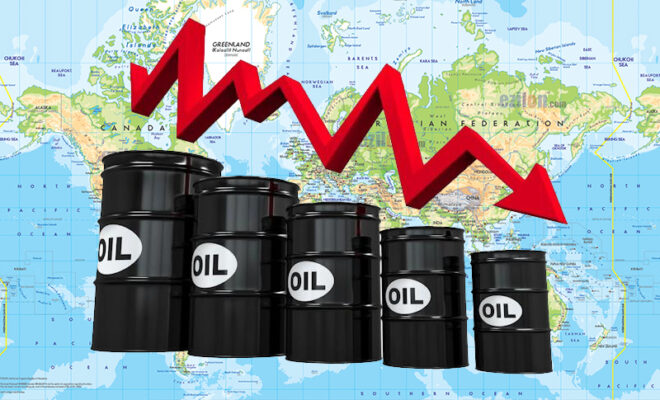International Oil Price Falls In The Midst Of Global Recession Fear

As fears of a supply disruption overshadowed worries about a potential recession impacting gasoline demand, oil prices dropped.
Following the significant sell-off in the prior session, speculators flooded the market again on Wednesday, focusing once more on supply issues even as concerns about a recession increased. As a result, crude oil futures increased by about 3%.
After falling 9.5 percent on Tuesday, the worst daily drop since March, Brent oil futures LCOc1 increased $2.82, or 2.7 percent, to $105.59 a barrel at 1222 GMT.
Following its first closing below $100 since late April, US West Texas Intermediate crude CLc1 increased $2.46, or 2.4 percent, to reach $101.95 per barrel.
The Again Capital LLC partner John Kilduff said.
“In a way, today is a reset. Without a doubt, there is a shortage of cover, and buyers are entering. The main narrative surrounding the tightening of the world economy remains. Clearly, the sell-off was excessive.”
The sector is “under siege” as a result of years of underinvestment, according to OPEC Secretary General Mohammad Barkindo.
He said that shortages could be alleviated if additional supply from Iran and Venezuela were permitted.
Dmitry Medvedev, a former president of Russia, also issued a warning, claiming that a rumored Japanese proposal to control the value of Russian oil at roughly half its present level would result in much less oil being available on the market and raise prices above $300-$400 per barrel.
On the other hand, a union official and the labor ministry reported that the Norwegian government intervened on Tuesday to halt a walkout in the petroleum industry that had reduced oil and gas production, breaking a deadlock that might have made Europe’s energy crisis worse.
According to the Norwegian Oil & Gas (NOG) employers’ lobby, by Saturday, the strike will have reduced everyday gas supplies by 1,117,000 barrels of oil equivalents (boe), or 56 percent, and lost 341,000 barrels of oil.
However, concerns about a recession have affected markets. The greatest economy in the world may have contracted in the 3 months between April and June, according to preliminary estimates.
That would constitute a technical recession since it would be the 2nd consecutive quarter of shrinkage.
In June, additional G10 central banks increased interest rates than in any month during the previous two decades combined, according to calculations by Reuters.
The rate of policy tightening is not anticipated to slow down in the 2nd half of 2022 with inflation reaching multi-decade highs.



